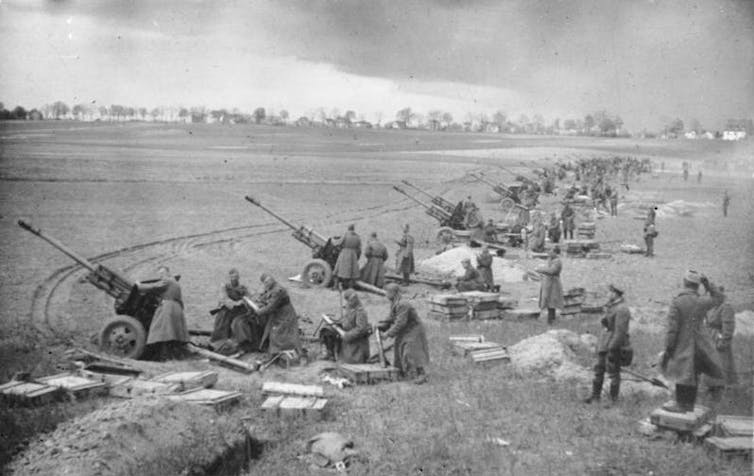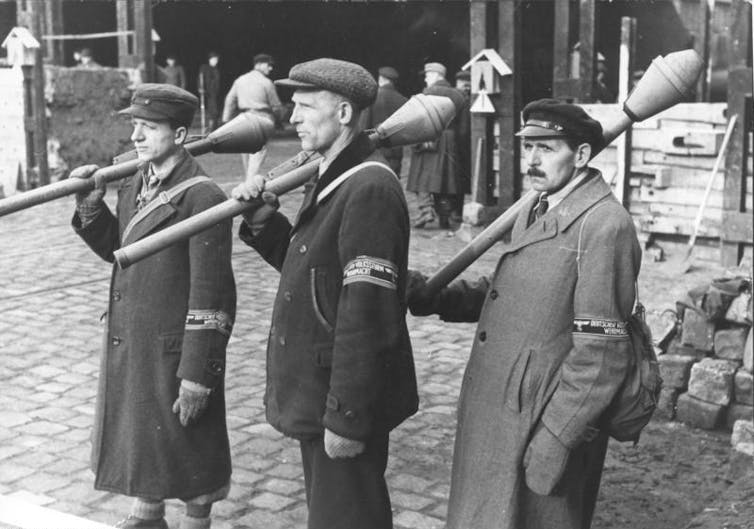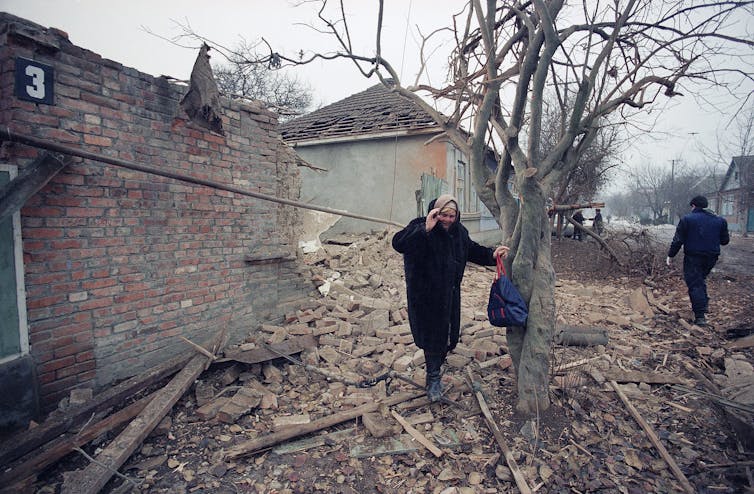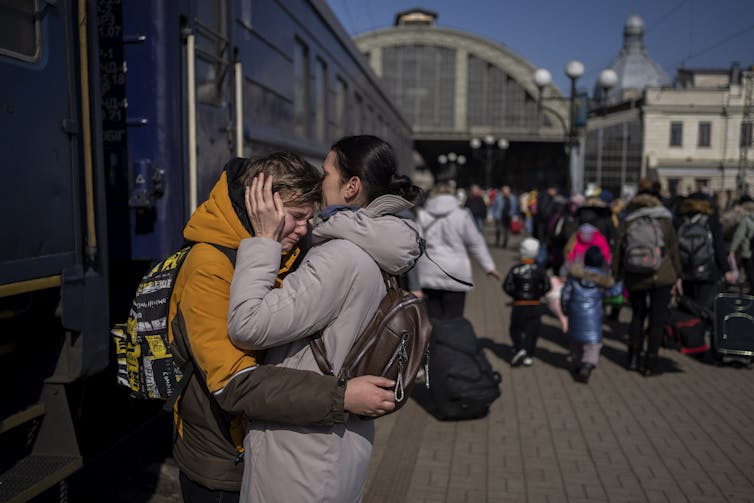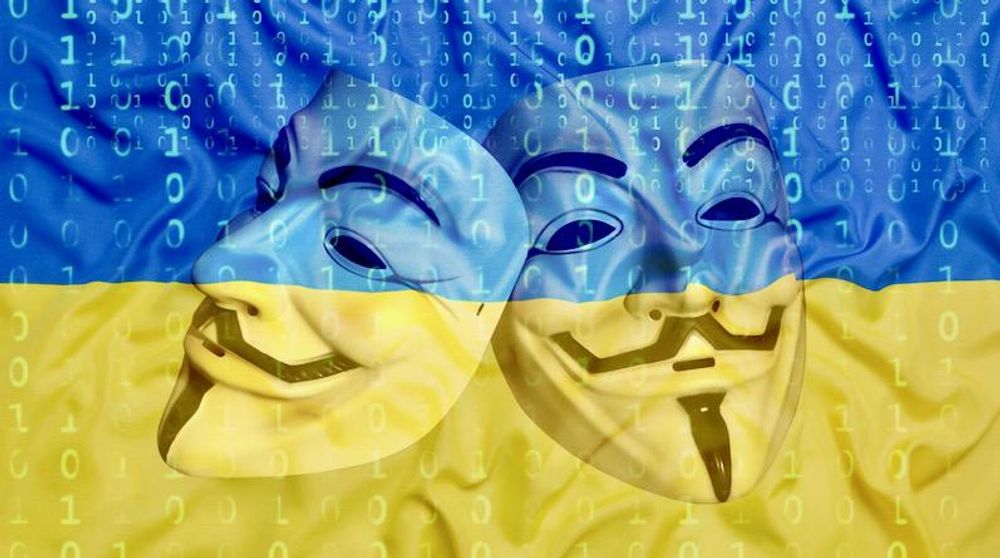In some parts of the world, the war in Ukraine seems justified
>> John Eligon, The New York Times
Published: 17 Mar 2022

A man drives a car with an image depicting Russian President Vladimir Putin wearing a traditional Serbian hat, during a rally in support of Russia, in Belgrade, Serbia, Mar 13, 2022. REUTERS/Zorana Jevtic
To an independent filmmaker in Hanoi, Vietnam, President Vladimir Putin of Russia is a “wise leader.” In Rio de Janeiro, a former restaurant owner said he was convinced that Ukraine had hired actors to fake war injuries. And a 27-year-old doctor living near Nairobi in Kenya questioned how Americans could be outraged over the Russian invasion when “for so long, they had a monopoly over anarchy.”
Most of the world has loudly and unequivocally condemned Putin for sparking a war with Ukraine. But in countries where governments have remained neutral, tacitly supported Russia or encouraged the dissemination of false or sanitised accounts of the war, citizens are voicing a much more complicated and forgiving narrative of Putin’s invasion.
Interviews with dozens of people in those countries — from Vietnam to Afghanistan to South Africa to China — reveal that while many are disturbed by the war and the loss of innocent lives, some are sympathetic to Russia’s justifications for its invasion of Ukraine, and do not accept the good versus evil scenario presented by the United States and Europe.
Their views are shaped by factors such as their countries’ deep and historic ties to Russia and the history of interventions and atrocities perpetrated by some Western countries — as well as disinformation and censorship that in some places is propagated by the state.
Many found resonance in the argument that Ukraine’s effort to join NATO compromised Russia’s security. Some held on to a nostalgia for the old Soviet Union. Still others could not side with a West that they viewed as hypocritical. These attitudes have helped prime the pump for the flourishing of conspiracy theories about the war.
“The US invaded Iraq and no one made the same noise as people are doing against Putin,” said Eni Aquino, 52, a sports commentator from Goiânia in midwestern Brazil.
Brazil’s president, Jair Bolsonaro, has strong ties to Putin and flew to Moscow right before the invasion, but has taken a position of neutrality on the war. Polls show wide approval for this stance.
Arthur Maia Caetano, 68, said that since shutting down his restaurant in Rio de Janeiro because of the pandemic, he has been using his time to read Russian news websites and bulletins from the 70 or so groups that he follows on the social messaging app Telegram.
“When I started to look carefully at war, I saw that the first to die is the truth,” Caetano said, citing unfounded claims circulating online, such as that Ukraine has hired actors to pretend they were injured and that it maintains biological weapons laboratories funded by the United States.
In China, state media has done much to bolster false stories about what is unfolding in Ukraine.
Outlets have republished official Russian propaganda without verification, including false reports that Ukraine had been using civilians as human shields and that President Volodymyr Zelensky had left Kyiv.
While Chinese officials have not explicitly endorsed the Kremlin’s actions, they have framed the invasion as a rational decision by Russia to resist aggression from the West, and specifically from the United States.
Zhang Han, 37, has been an avid consumer of that messaging. Zhang, a programmer at a technology company in the southern Chinese city of Shenzhen, said he was initially shocked by Putin’s actions. But he said he also empathised with the Russian leader’s desire to absorb Ukraine and pointed to China’s ambition to unify with Taiwan, the self-governed island that Beijing has long claimed as its own.
“Of course, I pity the situation of Ukrainians and hope that the war can end soon,” he said. “But that’s the mindset of a big country.”
In Vietnam, state authorities have also attempted to control the narrative about the war. Two editors for a Vietnamese online magazine and a state broadcaster said they were issued directives on reporting on the war that included reducing the extent and frequency of coverage, and banning the word “invasion.” Both asked to remain anonymous for fear of government reprisals.
Vuong Quoc Hung, a 36-year-old stockbroker from Hanoi, said he grew up watching documentaries and films on national television about the Soviet Red Army heroes who battled Nazi Germany during World War II. That made him fall in love with Russia, he said.
“So when Russia attacks Ukraine, people like me will sympathise with Russia, assuming that it is purely Russian self-defence,” he said.
The difficult balance for some, though, is that innocent Ukrainian lives are being lost. That toll is impossible to justify, some said, even if they think that Russia had the right to attack in self-defence.
Although Tran Trung Hieu, a 28-year-old independent filmmaker in Hanoi, firmly opposes the atrocities of war, he said his faith in Putin was unshaken.
“I’m quite sure that a wise leader like President Putin must have given a lot of thought before sending troops into Ukraine,” said Hieu, who was born in Russia.
He added that he was “a big fan of ‘Uncle Putin,’ because he always takes drastic actions.”
In India, the affinity for Russia is about much more than friendship. India relies on Russia for about half of its arms supplies, and has not spoken out against Russia. Some in India are critical of the United States for fighting wars overseas.
“Wherever they’ve gone, they’ve left it in a mess,” said Naresh Chand, a retired lieutenant general in the Indian army who trained in Russia and Ukraine.
The devastation of US military intervention remains fresh and painful in Afghanistan, leaving many Afghans angry at the United States and NATO for their failures, and the crushing economic and humanitarian disasters that followed the fall of the Western-backed government last year.
Nazir Hussani, 34, said he thinks the West will only widen the scope of the war in Ukraine by sending weapons there. And, he said, he doesn’t trust the Americans because of their history in Afghanistan, which they invaded in 2001.
“I know they don’t want to share the truth with the media and people,” he said.
To some, the West’s position on Ukraine’s war reeks of hypocrisy.
Dr Lucky Muange, who lives in Kiambu County, several miles north of Nairobi, said NATO and Western nations had little right to vilify Putin when they have in the past invaded and occupied poor countries, or interfered to topple their governments.
“So now they are shocked when Russia is the one doing it?” he said.
Since the start of the war, the South African government has been adamant about remaining neutral, and repeatedly called for peace. But officials have also gone out of their way to highlight the country’s longstanding friendship with Russia.
The Soviet Union was the first major world power to provide direct support for the struggle against apartheid in South Africa. Countries like the United States supported South Africa’s white, racist regime until the 1980s.
The African National Congress, which was in the forefront of the anti-apartheid movement, is South Africa’s governing party. The latest edition of its weekly newsletter includes an article with the headline, “Situation in Ukraine is about denazification of the country by Russia.” The article perpetuates the false claim, promoted by the Russian government, that in 2014 Ukraine’s government “was replaced by ultra-nationals and neo Nazis who were backed by the US and the EU.”
Siyabonga Ntuli, a 28-year-old software developer in Johannesburg, said that Putin’s claims about Nazis in Ukraine were false propaganda meant to justify the invasion. Still, Ntuli said, he believed that Putin did have good reason to go to war with Ukraine, because NATO’s eastward expansion threatened Russia.
“It’s a shame that Ukraine is going to end up picking up the bill for it,” he said. “But I think that NATO knew it. I think they wanted to test his resolve.”
Ntuli was chatting with three friends on a sunny afternoon in Gandhi Square in downtown Johannesburg, where they regularly meet to discuss life and current events.
Zamani Msimango, also 28 and a software developer, likened the current situation to the Cuban missile crisis of 1962, when the United States threatened to invade Cuba after the Soviet Union placed nuclear-armed missiles there.
“But somehow now they act like they don’t understand, when they themselves are pushing closer and closer to Russia, what that’s going to lead to,” Msimango said.
Thandiswa Bonani, a 40-year-old fashion designer in Johannesburg, said she believed that Zelensky, the Ukrainian president, was “manipulating other countries to feel sorry for him.”
“Putin, he didn’t just invade Ukraine,” she said. “There’s something there. I might not be able to put it in words, but there is something there.”
© 2022 The New York Times Company



